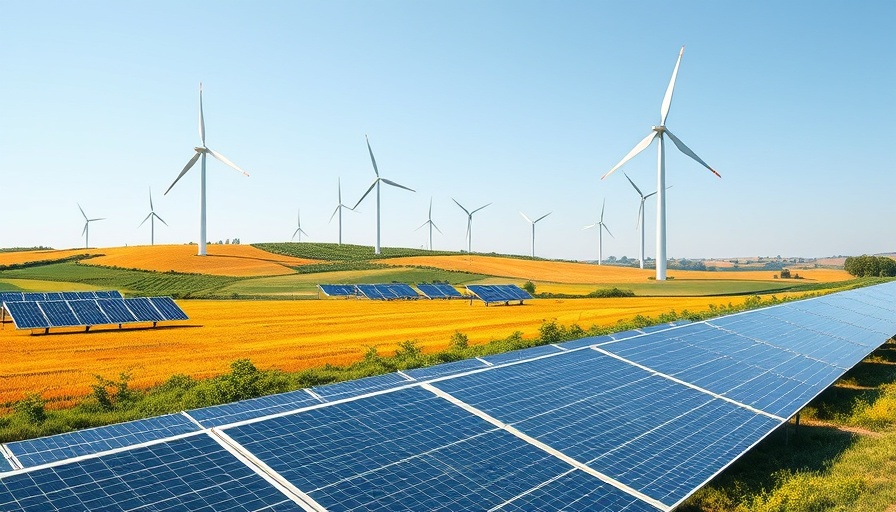
Recognizing the Reality of Climate Change: A Significant Shift
The financial landscape is shifting as recognition of climate change peaks among global banks. A staggering 99% of partner banks within the European Bank for Reconstruction and Development (EBRD) now acknowledge the severity of climate-related issues. This marks a pivotal turning point in financial dialogue, where discussions have progressed from mere recognition to proactive engagement. These banks now understand their role not just as financial entities but as crucial players in driving sustainable practice in emerging markets.
The Economic Stakes of the Climate Transition
With developing nations facing adaptation costs that could skyrocket to $300 billion annually by 2030 and even more by 2050, the stakes are incredibly high. Regions like the Mekong River Delta in Vietnam exemplify this urgency, where rising sea levels threaten agricultural output and displace communities, amplifying the necessity for financial institutions to act decisively. By mobilizing to finance the climate transition, these banks can help mitigate financial risks while also paving the way for sustainable economic growth.
Adapting Banking Strategies: Opportunities Await
The EBRD highlighted critical strategies banks can implement to facilitate this transition. A significant 40% of these banks have set long-term climate goals, while 31% plan to establish such goals within the next year. This proactive approach positions them to capitalize on the emerging green financial market—a sector that is not only financially viable but essential for environmental sustainability.
The Role of Financial Institutions in Climate Resilience
As financial entities shift their portfolios to reduce carbon footprints and minimize associated risks, they also stand to lead the charge in sustainable project financing. An impressive 59% of partner banks are incorporating green financial products into their offerings, with expectations of growth in their green asset ratios among 77% of these institutions. This blend of opportunity and responsibility places these banks at the forefront of climate action.
What Lies Ahead for Emerging Markets?
With the global landscape evolving, the future of banking in emerging markets hinges on their ability to implement sustainable and resilient practices. As these financial institutions navigate the climate transition, they will be instrumental not only in mitigating climate impacts but also in shaping the green economy's framework. A significant portion of their forthcoming agenda will revolve around aiming for net-zero emissions, alongside bolstering financial support for sustainable agricultural practices and renewable energy investments.
Building a Sustainable Financial Future
In conclusion, understanding these developments is crucial for import-export companies looking to navigate the evolving economic terrain. Adopting sustainable practices is not only beneficial for ecological accountability but is increasingly becoming integral to successful business models. By engaging in the climate transition, companies can position themselves as responsible leaders in their sectors.
As a call to action, consider how your business can contribute to this pivotal moment in the banking sector by aligning your strategies with climate resilience initiatives. Engaging with these changes now can safeguard your operations against future climate risks and position your brand as a forward-thinking player in the global market.
 Add Row
Add Row  Add
Add 




 Add Row
Add Row  Add
Add 

Write A Comment